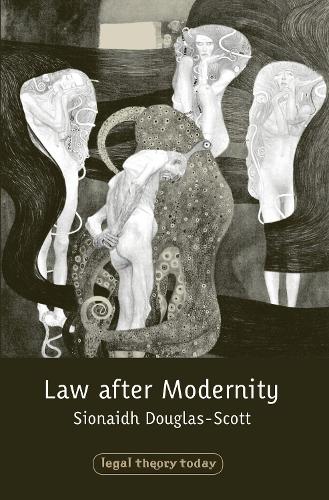
Law after Modernity
(Hardback)
Publishing Details
Law after Modernity
By (Author) Sionaidh Douglas-Scott
Bloomsbury Publishing PLC
Hart Publishing
30th April 2013
United Kingdom
Classifications
Professional and Scholarly
Non Fiction
340.1
Physical Properties
Hardback
428
Width 164mm, Height 240mm, Spine 32mm
800g
Description
How can we characterise law and legal theory in the twenty-first century Law After Modernity argues that we live in an age 'after Modernity' and that legal theory must take account of this fact. The book presents a dynamic analysis of law, which focusses on the richness and pluralism of law, on its historical embeddedness, its cultural contingencies, as well as acknowledging contemporary law's global and transnational dimensions. However, Law After Modernity also warns that the complexity, fragmentation, pluralism and globalisation of contemporary law may all too easily perpetuate injustice. In this respect, the book departs from many postmodern and pluralist accounts of law. Indeed, it asserts that the quest for justice becomes a crucial issue for law in the era of legal pluralism, and it investigates how it may be achieved. The approach is fresh, contextual and interdisciplinary, and, unusually for a legal theory work, is illustrated throughout with works of art and visual representations, which serve to re-enforce the messages of the book.
Reviews
... the work is interesting, the arguments clear, and the book is well-written. Douglas-Scott's book has a number of successes. It provides good discussions of a wide range of thinkers and arguments... the survey is wide and largely accurate...It is a work I can and do recommend. -- John H. Bogart * Law and Politics Book Review, Volume 24, Number 4 *
... a sophisticated and thought-provoking attempt to reinterpret legal theory, amplifying earlier work on legal pluralism, transnational legal theory, and European Union law in order to outline a "cultural" theory of law. It will be of particular interest to those who are troubled by the widespread desire to "constitutionalize" international and European Union law. -- Umut zsu * International Journal of Constitutional Law, Volume 12, Number 1 *
Author Bio
Sionaidh Douglas-Scott is Professor of European and Human Rights Law at the University of Oxford.
